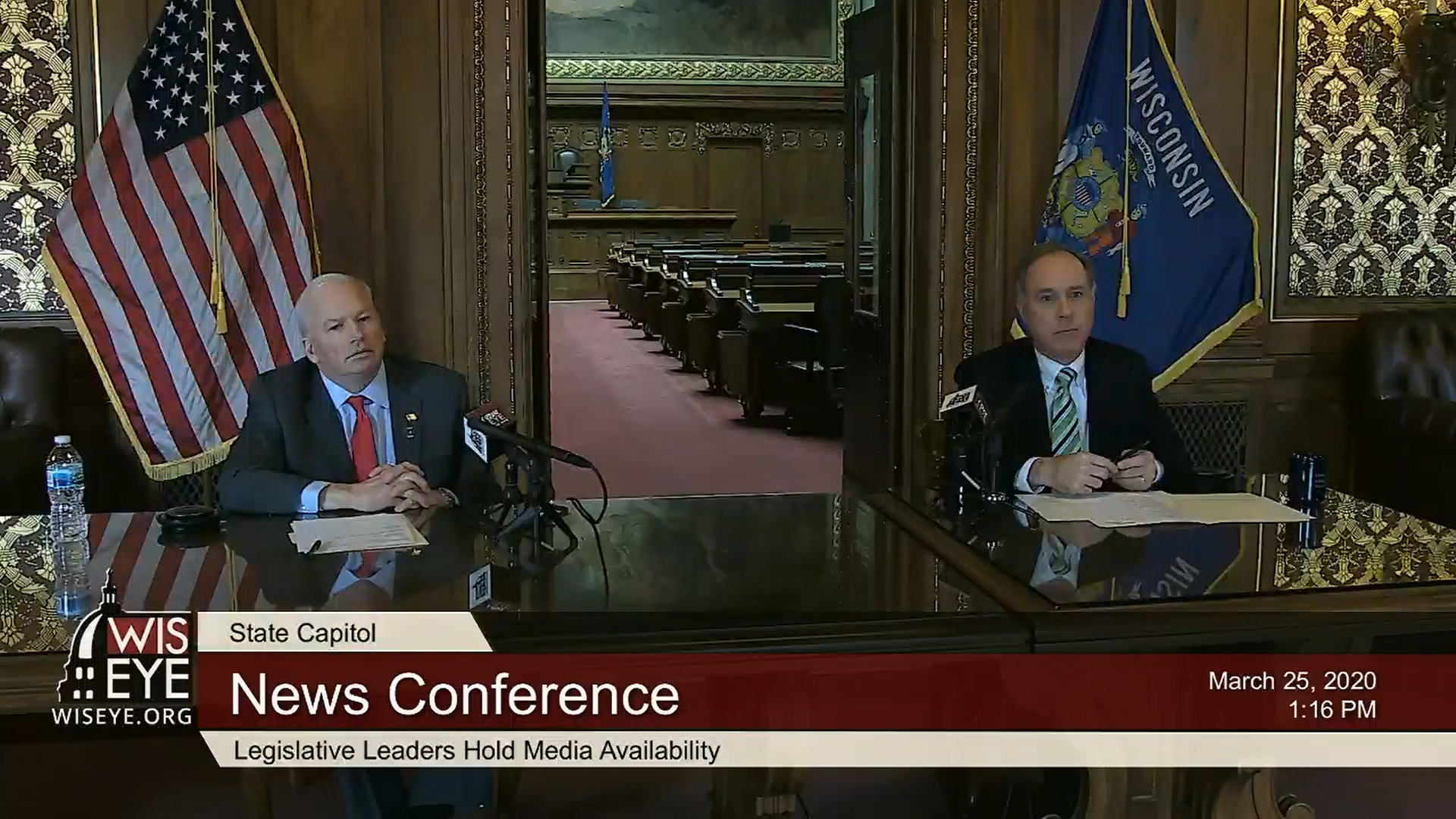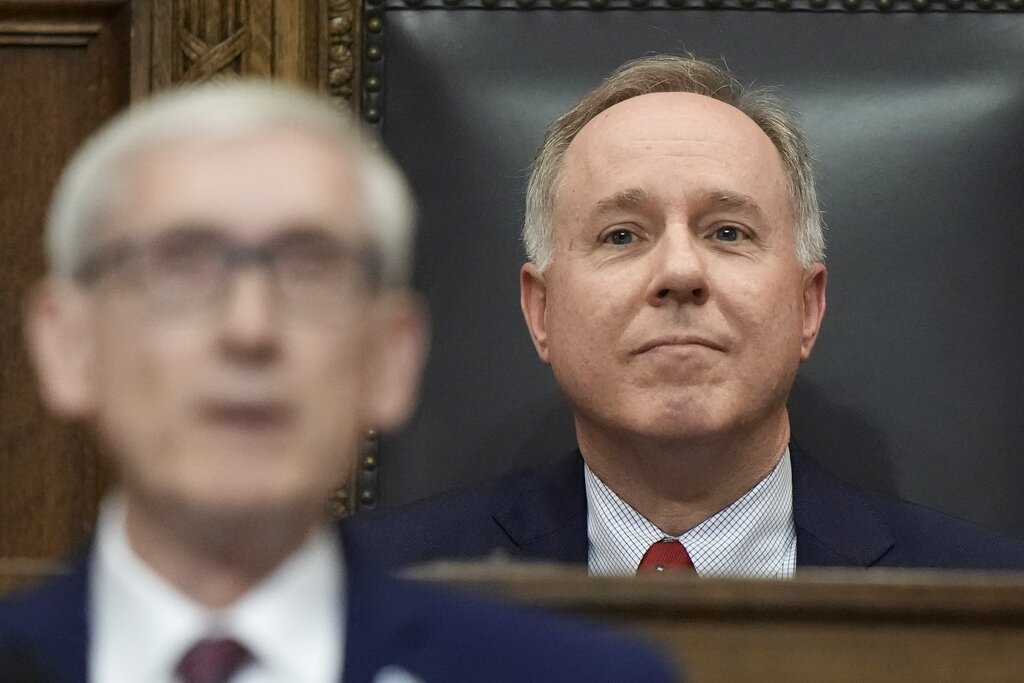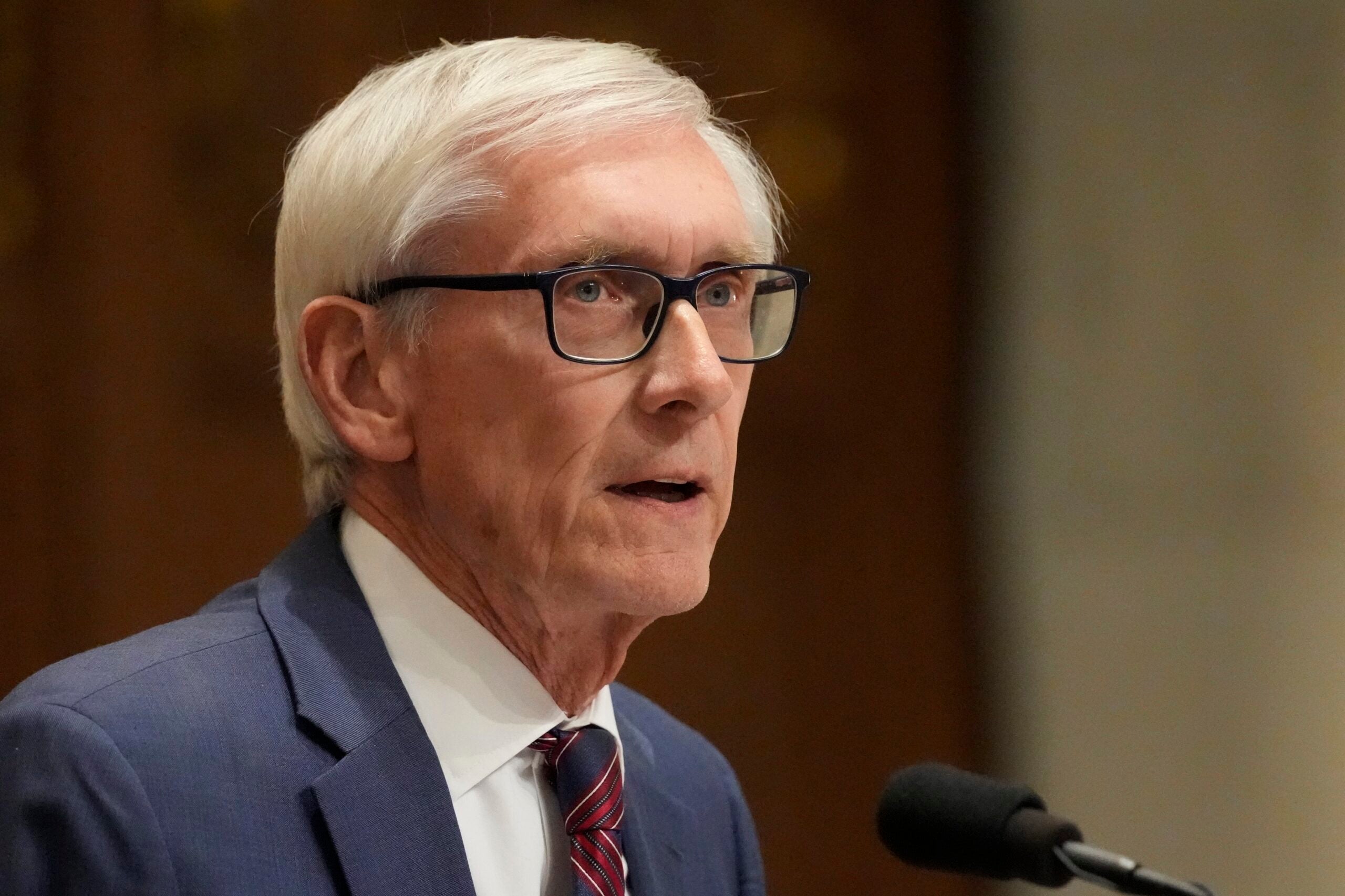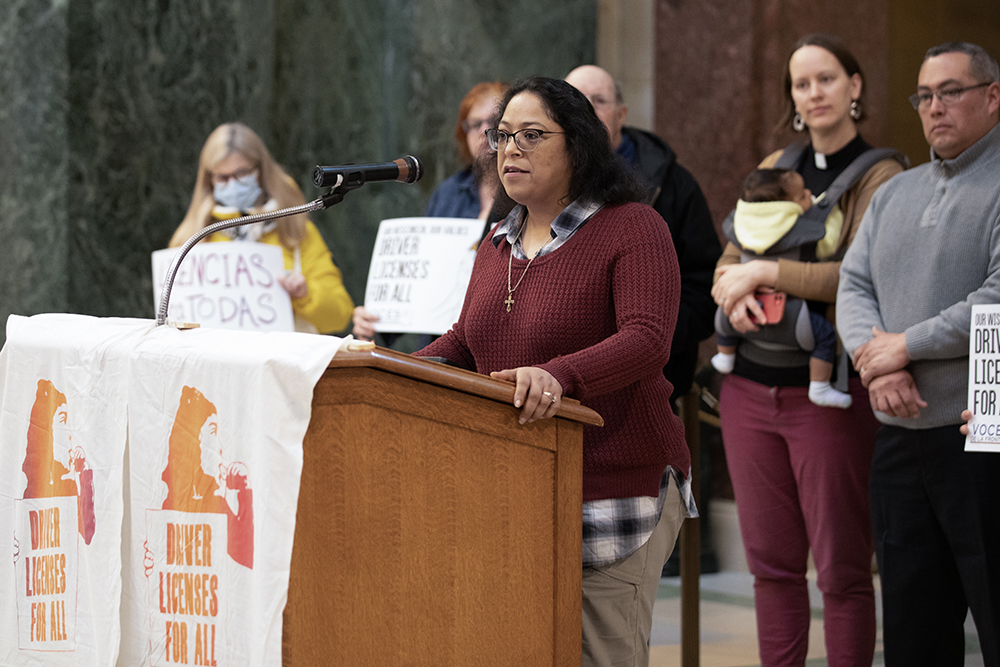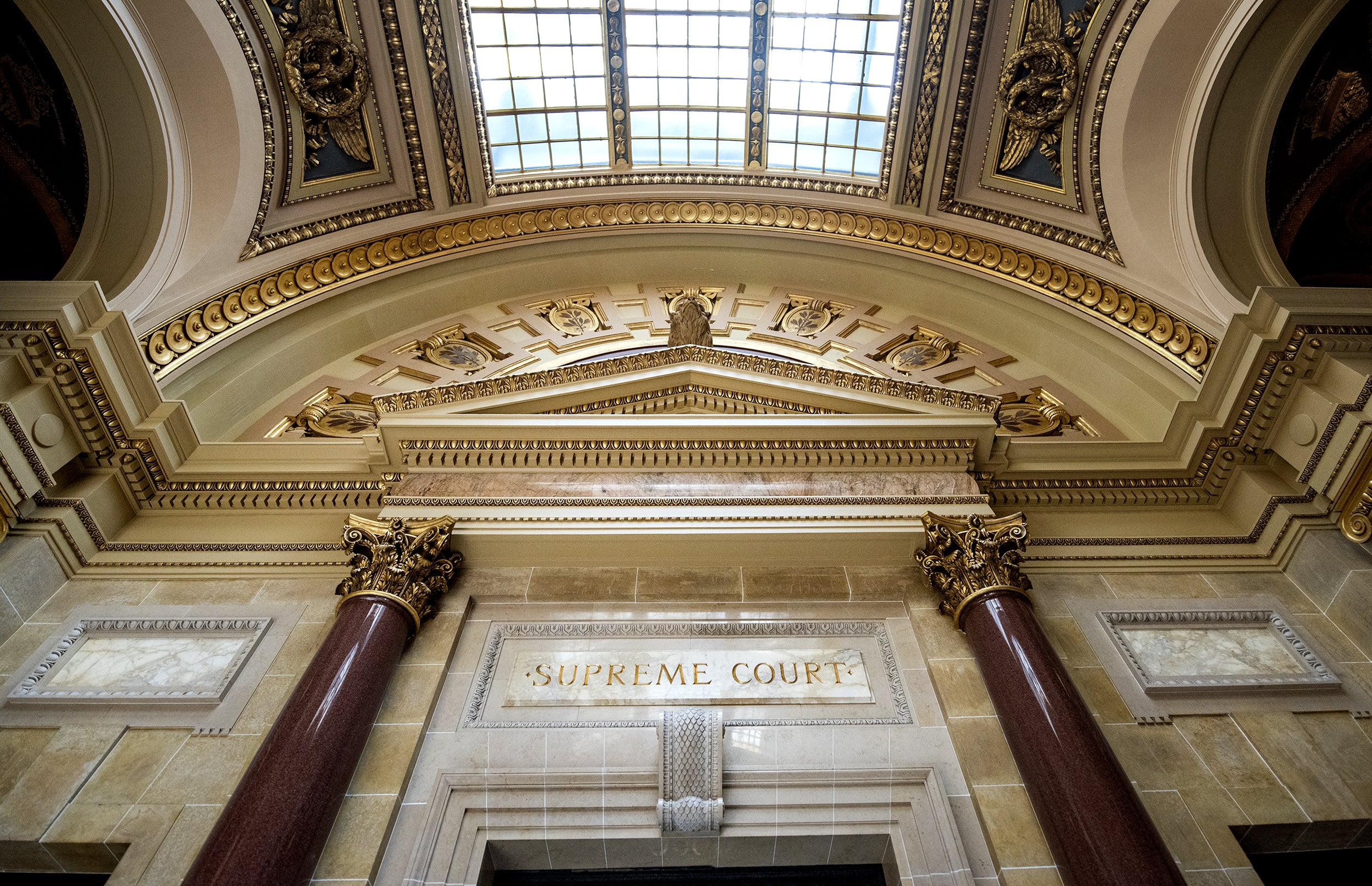The Wisconsin Legislature’s top Republicans said Wednesday that now is not the time to question the emergency powers Democratic Gov. Tony Evers is using to fight the COVID-19 pandemic, saying those debates can wait for another day.
The comments from Sen. Majority Leader Scott Fitzgerald, R-Juneau, and Assembly Speaker Robin Vos, R-Rochester, are noteworthy because of their often adversarial relationship with Evers. Long before the new coronavirus began its spread across the globe, both men oversaw a push to limit the governor’s powers and give more authority to the Legislature.
While they’ve criticized the way Evers shared news of his decision to close many Wisconsin businesses through a “stay-at-home” order, during a conference call with reporters Wednesday, they repeatedly stopped short of saying the governor had gone too far.
News with a little more humanity
WPR’s “Wisconsin Today” newsletter keeps you connected to the state you love without feeling overwhelmed. No paywall. No agenda. No corporate filter.
“This is a different reality than any of us have ever been in before,” Vos told reporters. “I think we’re going to look back and have questions about how all this went, but this is not the appropriate time to question it.”
Vos said his fear was the longer the stay-at-home order was in place, the more likely it was to force businesses to close. But neither he nor Fitzgerald criticized the substance of the order or suggested it should be shorter.
“It is what it is at this point,” Fitzgerald said. “It wasn’t the smoothest thing that has happened so far, but I understand we’re in a difficult period of time here and things like that are going to happen.”
Some rank-and-file Republican lawmakers feel differently.
Sen. Devin LeMahieu, R-Oostburg, said in a statement Tuesday that Evers should rethink his order, saying the governor had “used a sledgehammer rather than a scalpel” to address the COVID-19 crisis.
Sen. David Craig, R-Big Bend, was even more outspoken, seeking cosponsors for a bill that would give the Legislature more checks over the governor’s emergency powers.
“To impair fundamental rights — as gathering bans, etc. do — the government must have a compelling state interest to do so AND must do so in a narrowly tailored and least restrictive means possible under the constitution,” Craig said in a memo to the full Legislature. “Without additional clarity by the executive branch, it is clear that this authority has been exceeded.”
Other Wisconsin conservatives have also questioned the government’s response to COVID-19. Moments after Fitzgerald and Vos spoke, Wisconsin Supreme Court Justice Rebecca Bradley tweeted a quote from Samuel Adams, one of the Founding Fathers.
“The liberties of our country..are worth defending at all hazards,” read Bradley’s tweet.
Bradley was also sharply critical of the Wisconsin Supreme Court on Sunday for temporarily halting all jury trials, saying if “the people’s constitutional rights may be suspended by the judicial branch in the name of a public health emergency, our freedom is in peril; our republic is lost.”
Vos and Fitzgerald were asked if they’d consider passing a resolution to revoke Evers’ emergency powers. Neither lawmaker indicated they were entertaining such a move.
“I’m not prepared to say that that would be something that we would even consider,” said Fitzgerald. “It’s not something I’ve considered.”
Vos said Evers’ emergency powers were granted to him under a state law written to ensure continuity in government during a time of crisis. Once a governor declares a public health emergency, as Evers did March 12, Vos said his emergency powers last for up to 60 days.
“Once we get past that 60 days, we have to see a very clear-cut reason if there is any to extend beyond those 60 days,” Vos said.
Vos said the question of checks and balances between the Legislature, governor and court system would need to be revisited in the future. But right now, he said, was not the time.
“We’re going to be able to look back in hindsight and perhaps say we made a lot of mistakes,” Vos said. “But I don’t know how else we can get this virus under control.”
Wisconsin Public Radio, © Copyright 2026, Board of Regents of the University of Wisconsin System and Wisconsin Educational Communications Board.

